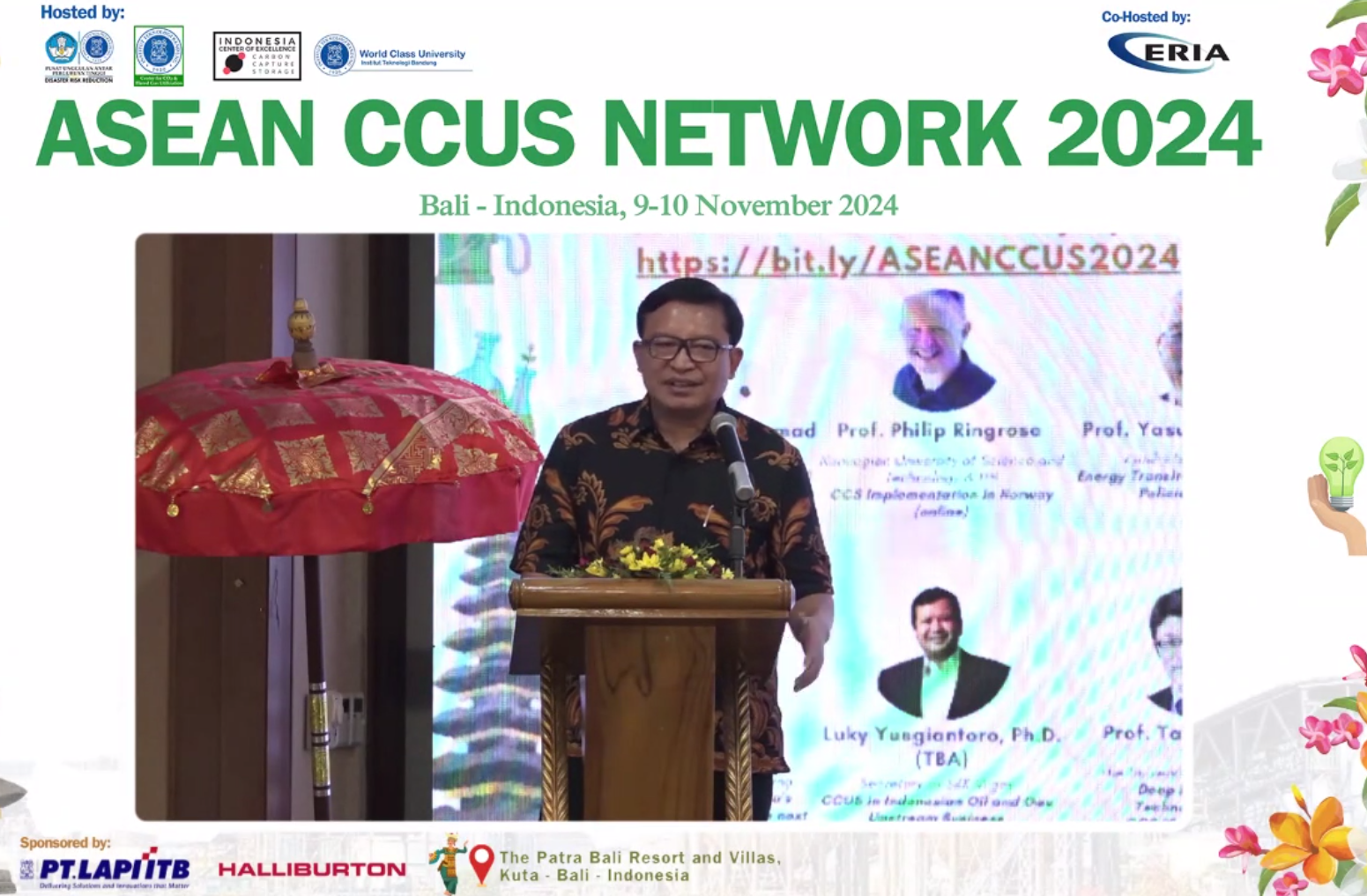Workshop & Capacity Building

ERIA and ITB hosts the ASEAN CCUS Network 2024
Bali, 9 – 13 November 2024. The Economic Research Institute for ASEAN and East Asia in partnership with Institut Teknologi Bandung (ITB) has successfully hosted the ‘ASEAN CCUS Network 2024” at the Patra Bali Resort & Villas, Bali, Indonesia. The event focused on key issues on CCUS technologies, such as policy and regulatory frameworks, carbon management, economics, and project case studies from across the globe. The event was conducted in conjunction with the 28th Regional Symposium on Chemical Engineering 2024.
The event brought together 50 offline participants and around 50 online participants, ranging from engineers, academia, researchers, students, policymakers, and professionals. The event was held within two parts; 1. Symposium of ASEAN CCUS Network conducted on 9-10 November, and 2. Technology courses on fiber optic sensing for CCS and CCUS monitoring, and Microbubble CO2-injection conducted on 11-13 November.
During thesymposium’s welcome speech, Prof Sanggono Adisasmito, Head of Center of Carbon Dioxide and Flared Gas Utilization, ITB, underlined the importance of CCUS technology in driving down emission to realize carbon neutrality scenarios. Prof Adisasmito also touched upon the need of regional collaboration to advance the implementation of CCUS in the region, and the role of a knowledge network will be crucial.
Mr Noor Arifin Muhammad, Director of Engineering and Environment in Oil and Gas, Ministry of Energy and Mineral Resources, Indonesia, delivered his keynote speech which reiterates the importance of the symposium to catalyze the knowledge bridging between stakeholders in the region, especially in Indonesia. He also mentioned the commitment of Indonesia’s government to accelerate the implementation of CCUS, by continuously building a good business environment for CCS and CCUS, through policy and regulatory frameworks.
Dr Gusti Sidemen, CCS/CCUS expert of ERIA, delivered a presentation on the economical aspects of CCS and CCUS. Dr Sidemen introduced the Asia CCUS Network (ACN), which is part of ERIA’s initiative which is a knowledge sharing platform to bridge the knowledge gap between stakeholders in the region on CCUS, with the main goal to accelerate the implementation of CCUS pilot project in ASEAN by 2030. He also presented ACN’s past research on CCUS feasibility studies in Indonesia, as well as the study on CCS in ASEAN region.
The symposium invited speakers from various parts of the world, including Prof Phillip Ringrose, Norwegian University of Science and Technology (NTNU), Prof Yasuhiro Yamada, Kyushu University, Prof Takeshi Tsuji, University of Tokyo, Mr Ming Ongkwan, Director of Strategic Business, Halliburton Consulting, Prof Tutuka Ariadji, ITB, Ms Dewi Mersitarini, Principal Specialist Upstream Research, Pertamina.
Dr Mohammad Rachmat Sule, ITB delivered the closing remarks on the second day of the symposium, where he summarizes the whole 2-day program into a message of further collaboration in terms of CCUS implementation and advancement. He hope to further collaborate with all of the speakers and participants on CCS/CCUS research, studies, and knowledge exchange.
The event continued with technical courses. The first part of the course discussed on the fiber optic sensing for CCS and CCUS monitoring, which invites experts from ITB, RITE Japan, University of Tokyo, and Haliburton. The second part of the course discussed the microbubble CO2 injection which was presented by Prof Tutuka Ariadji from ITB and also an expert from cladtek.